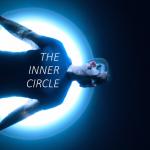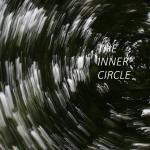
Out of all the beliefs I have reconsidered over the last few years as part of my ongoing deconstruction/reconstruction process, this may be one of the most puzzling.
Honestly, I’m not even sure what to call it. It’s not merely the Incarnation of Christ or the nature of the Trinity, or the Deity of Jesus, or the definition of God. It’s sort of all of that wrapped up into one confusing lump.
I can remember reading Alister McGrath’s book on the Trinity back in college and marveling at how much mystery and nuance there was surrounding the subject. His analogy about how language was incapable of adequately describing the taste of coffee to someone who had never tasted it has stuck with me all these years.
More recently, my back-and-forth conversations with my friend Jamal Jivanjee about whether or not Christ was only in those who placed their faith in him [versus Christ in everyone regardless of their faith], really helped move the needle for me and eventually convinced me that, yes, Christ was truly “all and in all” and “the one in whom we all live and move and have our being.”
What really helped give me language for that “Christ in all” perspective was an analogy found in Richard Rohr’s excellent book, “The Universal Christ” where he shares the testimony of a woman who once had an epiphany where she could suddenly see Christ in everyone around her; a phenomenon which lasted a few days, and her realization that “Christ was in everyone, but for some he was dead in his tomb awaiting his resurrection” really solidified that concept for me in a beautiful way. [Paraphrased]
So, as I’m beginning to embrace this new idea of “Christ in all” there has come yet another paradigm-shifting idea that God is everything.
I suppose it’s come about as the result of a few related studies I’ve undertaken in both the realm of Quantum Science and the sayings of Jesus in the Gospel of Thomas, as well as the writings of other mystics, and the parallels found in Philippians, Ephesians, Colossians, John’s Gospel, and a few others.
So, here’s where these have influenced my thinking: First, when Quantum Physicists like the famed Sir James Jean makes statements to this effect:
“The stream of knowledge is heading towards a non-mechanical [non material] reality; the Universe begins to look more and more like a great thought than like a great machine. Mind [consciousness] no longer appears to be an accidental intruder into the realm of matter…we ought rather hail it as the creator and governor of the realm of matter.” [The Mysterious Universe, p. 137]
…it begins to become undeniable that God [or consciousness] is everything, and everything is God [or consciousness].
Perhaps you think that’s too far a leap of logic. Perhaps it is. But, the more I read and study what mystics across a multitude of faiths have to say about consciousness and reality, the more I am becoming convinced that “God/Christ is all and in all” as the Apostle Paul suggests, and that “we are filled with the fullness of [Christ] who fills everything in every way.”
The sayings of Jesus in Thomas affirm this. The words of Black Elk do as well. As do the teachings of the Buddha, and countless other mystics.
Even early Christian theologian Athanasius [who presided over the Council of Nicea] said this:
“For He [Christ] was not, as might be imagined, circumscribed in the body, nor, while present in the body, was He absent elsewhere; nor, while He moved the body, was the universe left void of His working and Providence; but, thing most marvellous, Word as He was, so far from being contained by anything, He rather contained all things Himself; and just as while present in the whole of Creation, He is at once distinct in being from the universe, and present in all things by His own power — giving order to all things, and over all and in all revealing His own providence, and giving life to each thing and all things, including the whole without being included, but being in His own Father alone wholly and in every respect —2. thus, even while present in a human body and Himself quickening it, He was, without inconsistency, quickening the universe as well, and was in every process of nature, and was outside the whole, and while known from the body by His works, He was none the less manifest from the working of the universe as well.” – [From Athanasius’s “On The Incarnation of Christ”, section 17: How the Incarnation did not limit the ubiquity of the Word, nor diminish His Purity (Simile of the Sun)]
Over the weekend I was engaged in a fascinating dialog with several friends in my Square 3 community and this question came up about the identity of Christ and our own Divine nature and it prompted me to revisit the Apostle Paul’s encouragement in Philippians chapter 2 where he says:
“In your relationships with one another, have the same mindset as Christ Jesus:
Who, being in very nature God,
did not consider equality with God something to be used to his own advantage;
rather, he made himself nothing
by taking the very nature of a servant,
being made in human likeness.” [v. 5-7]
What I noticed was the statement at the very beginning of the section where Paul says that we should have the “same mindset as Christ Jesus, who, being in very nature God..” and it struck me much differently than before: “We should have the same mindset as Jesus who was, [like us], in very nature God.”
Now, I understand that what’s being said in this passage is more about how we interact in our “relationships with one another” as Paul uses the analog of how Jesus reacted when he knew we was “in very nature God” and that our reaction should be the same as his reaction: to become the servant of all.
But, the analogy remains: Our attitude should be the same as Jesus’s attitude once he knew he was “in very nature God”; not to “Lord it over” one another, but to accept the realization with humility and serve rather than rule; to give rather than demand; to share rather than grasp.
Why? Because we realize that our Divinity is what unites us all as one.
God is all of us.
When Jesus was called a heretic and threatened with charges of blasphemy for saying “Before Abraham was, I Am,” in the Gospel of John, his response to those who took issue with his claim of shared Divinity with the Father was simply this:
“Is it not written in your Law, ‘I have said you are “gods”’? If he called them ‘gods,’ to whom the word of God came—and Scripture cannot be set aside— what about the one whom the Father set apart as his very own and sent into the world? Why then do you accuse me of blasphemy because I said, ‘I am God’s Son’?” [John 10:34-36]
In other words: Your own scriptures confirm that God has called you gods, so why does it surprise you that I claim to be God’s son?
From the Quantum perspective, reality appears to involve a variety of separate things: Trees, cars, animals, elements, etc. but at the Quantum level what we’re beginning to realize is that this perception is an illusion. The reality is that all of these seemingly disparate things are actually expressions of a single quantum field. There is no separation between you and the chair, or between the tree and the sky, or between the ocean and the flame. Everything, everywhere, is the same quantum field manifesting itself in a different form, but in reality it is all still the very same thing.
So, if all fire is the same flame; if all water is the same ocean, if all consciousness is the one consciousness, then maybe it’s not too much of a stretch to say that God is all of us.
What do you think?
**
DID YOU KNOW? The majority view of the doctrine of Hell for the first 400 years of Church History was Universal Reconciliation?
Join me starting Monday, November 7th, for a 3-week online course about the 3 Views of Hell held by Christianity throughout the ages and find out why the doctrine of Eternal Torment has no leg to stand on.
REGISTER TODAY FOR ONLY $19.99 HERE>
**
Keith Giles is the best-selling author of the Jesus Un series. He has appeared on CNN, USA Today, BuzzFeed, and John Fugelsang’s “Tell Me Everything.” His latest book, SOLA MYSTERIUM: Celebrating the Beautiful Uncertainty of Everything is available now on Amazon in paperback and on Kindle.













